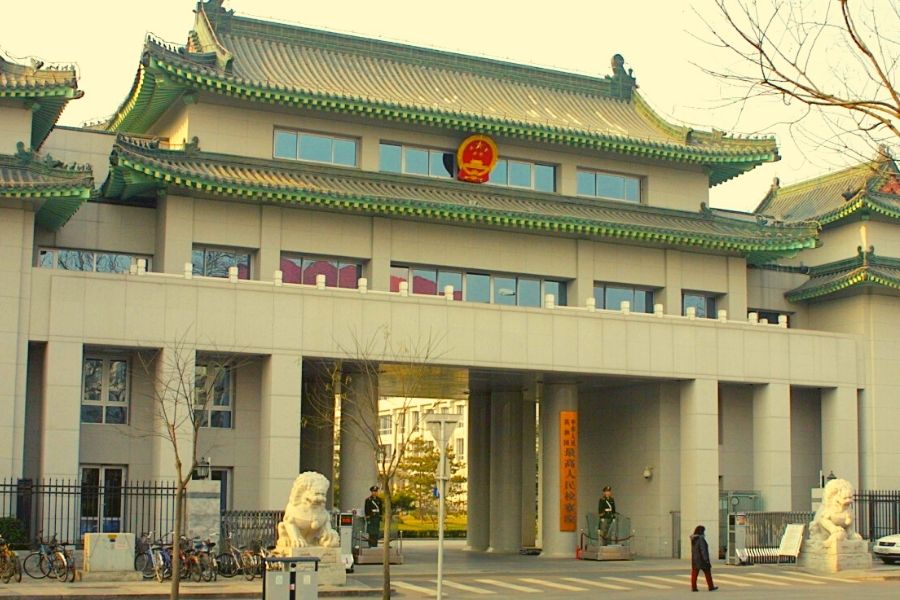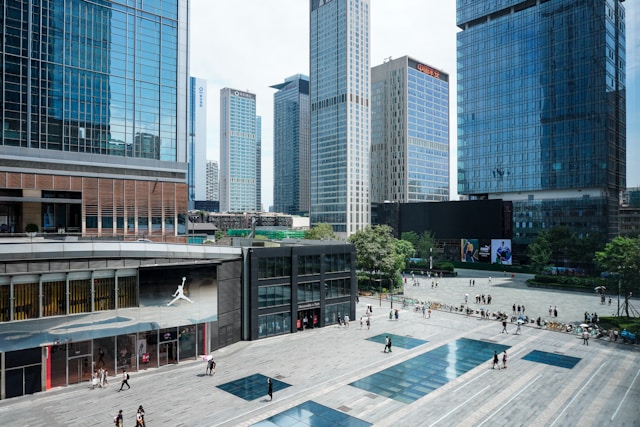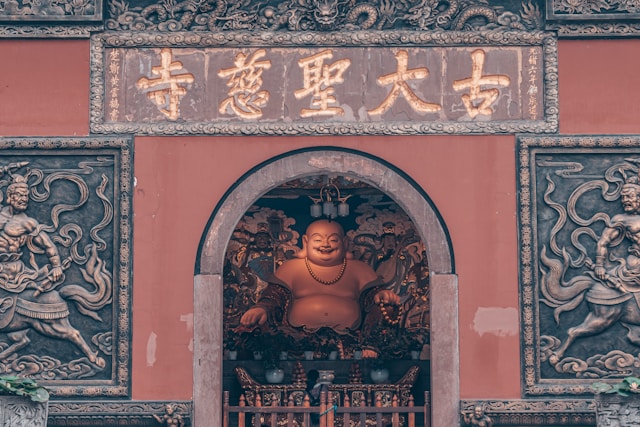
If you want to safeguard your own rights and interests through China's judicial system, besides the people's court, you may also consider the People's Procuratorate.
In this post, we will introduce the procuratorate system based on the work report of the Supreme People's Procuratorate (SPP) to the National People's Congress of China in March 2019.
Procuratorate can be understood as the Prosecutor's Office. In most countries, prosecutors are mainly responsible for filing charges against defendants in criminal proceedings. In China, prosecutors have a much broader range of powers, in addition to filing charges, also including authorizing approval of arrests, supervising other activities in criminal proceedings, supervising civil and administrative proceedings before courts, instituting public interest litigation, supervising prisons and detention houses, supervising the enforcement of court judgments, and investigating “offences in office”.
It should be noted that in China, prosecutors are subordinate to the procuratorate, not to the Ministry of Justice. The Ministry of Justice is a department of the central government, while the procuratorate is an institution at the same level as the central government and the Supreme People's Court (SPC).
1. Approving Arrests and Filing Charges
The prosecutor has the power to decide whether to approve the police's arrest of criminal suspects and whether to file charges with the court after the police investigation has been completed. Therefore, in the criminal proceedings, the prosecutor plays a key role in supervising the police and protecting the criminal suspects. The SPP also regards the number of decisions of prosecutors nationwide not to arrest and the number of those not to file charges as its most commendable performance.
After the prosecutor decides to prosecute, he is responsible for filing charges and appearing in court to argue the case. Therefore, the prosecutor also bears the responsibility of combating crime. In its annual report, the SPP counts the number of defendants prosecuted by prosecutors nationwide in important areas of crime.
It is noteworthy that in 2019, the SPP emphasized its reform measures of "combining arrest with prosecution". Prior to this, within the procuratorate, the prosecutors of different departments were responsible for approving arrest and prosecuting. The same prosecutor is now responsible for the arrest and prosecution of the same case, with the aim of improving the efficiency of supervising the police and handling cases. Correspondingly, the departments within the procuratorate are now divided according to the types of crimes under their responsibility, so that the prosecutors are able to focus on a certain type of cases.
2. Supervising Other Criminal Proceedings
In addition to approving arrest and filing charges, prosecutors can also supervise other aspects of criminal proceedings, such as police’s case filing, investigation, court hearing, prison and detention house management.
For example, the prosecutor can urge the police to file cases that should be filed and investigated, or he can urge the police to dismiss cases that should not be. If the prosecutor considers that the police's investigation and evidence collection is illegal or that the compulsory measures taken against the suspects are unreasonable, he may also make suggestions to the police.
If the prosecutor considers that the criminal judgment of the court is incorrect, he may lodge a protest and request the court to revise the judgment and/or retry the case.
3. Supervising Civil Proceedings
If the prosecutor considers that the effective civil judgment of the court is incorrect, he may lodge a protest and request the court to retry the case; he may also make suggestions thereto and the court may decide whether to retry the case or not. This is equivalent to providing another way for the parties in civil proceedings to seek relief. Especially in the case of unfair trial, the supervision by prosecutors can check and balance the power of judges to a certain extent.
In addition, Chinese courts attach great importance to the enforcement of civil cases. As prosecutors are also required to supervise the enforcement of civil judgments, the procuratorate has supervised both the court and the judgment debtor. On the one hand, prosecutors can supervise the illegal acts committed by judges in enforcement. For example, in 2018, prosecutors have made 23,814 suggestions to the court, up 12.7% from the previous year. On the other hand, for those who refuse to enforce court judgments to the extent of constituting a crime, prosecutors will also approve the arrest or prosecution against them, for example, 2,376 people were arrested in 2018 for the said reason.
4. Supervising Administrative Proceedings
In the administrative proceedings where citizens, enterprises and organizations sue the government, if the prosecutor finds that the effective judgment rendered by the court is incorrect, he can also lodge a protest and suggestion with the court just as his supervision in the civil litigation. Therefore, if you sue a local government of China in court and think that the court has not dealt fairly with the dispute between you and the government, you may consider resorting to the prosecutor.
5. Instituting Public Interest Litigation
Since March 2018, according to the judicial interpretation jointly promulgated by the SPP and the SPC, the procuratorate can initiate public interest litigation as a plaintiff. During 2018, Chinese prosecutors handled 4,393 civil and 108,767 administrative lawsuits involving public interest. These public interest litigations include the protection of ecological environment and resources, food and drug safety, the protection of state-owned property, the transfer of the right to use state-owned land, and the protection of heroes and martyrs’ rights and interests.
It is worth noting that in China, the destroyers of the ecological environment are subject to more and more public interest lawsuits filed by prosecutors. And given that prosecutors have the investigative power in public interest litigation, the possibility of destroyers escaping punishment is getting lower and lower. This power of the prosecutor will be beneficial to environmental governance in China and even in the world.
6. Investigating Offences in Office
It is one of the most important powers of the procuratorate to investigate offences in office committed by state functionaries. However, when China revised its Constitution in March 2018, such powers were materially adjusted.
According to the amendment to the Constitution, China has established a new organ, the "Supervisory Commission"(or "Commission of Supervision"), which is at the same level as the courts, procuratorates and the government and is responsible for investigating offences in office committed by state functionaries.
This means that the foregoing investigative powers of the procuratorate have been transferred to this new institution. Accordingly, the prosecutors responsible for investigating offences in office in various procuratorates have been gradually transferred to the Supervisory Committee. At present, the procuratorate only retains the power to supervise the crimes committed by judges and police officers.
The adjustment to the investigative power of offences in office is the most significant change that Chinese procuratorates have encountered in their history, and it is also a major change in China's constitutional system. However, this also makes the SPP pay more attention to other functions and powers besides the investigation, that is, the functions and powers introduced above. The SPP summarizes these functions and powers into four procuratorial powers: procuratorial powers in criminal proceedings, procuratorial powers in civil proceedings, procuratorial powers in administrative proceedings and procuratorial powers in public interest proceedings.
In short, if you are engaged in economic exchanges with Chinese enterprises, or if you are involved in crimes in China, or if you are subject to unfair civil proceedings in China, or if you think that the actions of local governments in China are illegal, or if you are committed to global environmental protection, then you must not ignore the procuratorate of China and its four functions and powers.
Contributors: Guodong Du 杜國棟 , Meng Yu 余萌









